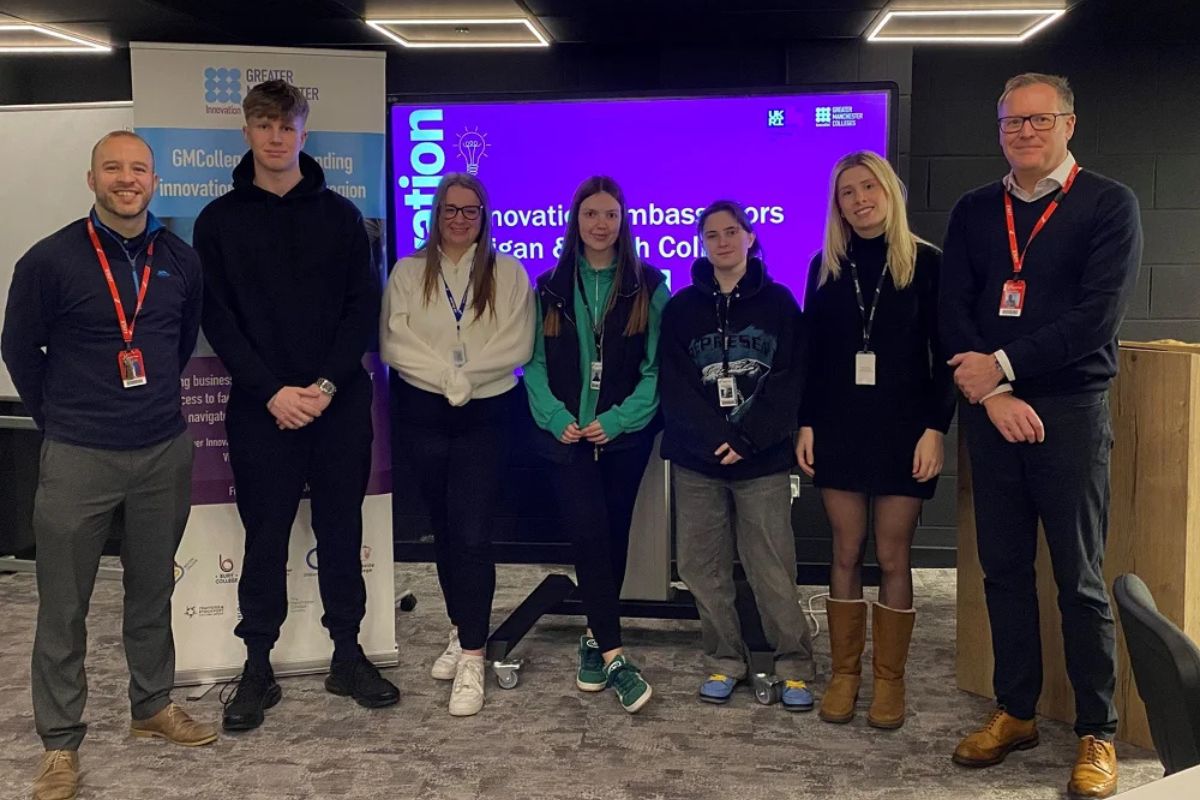Evidencing contribution to meeting digital skills needs

The changes to the Ofsted Inspection Handbook for September 2022 examine FE providers’ contribution to meeting skills needs and encourage them to rationalise partnerships with employers and other stakeholders, and look at how staff CPD is directly aligned to curriculum intent, implementation, and impact.
The sub judgement on the degree to which the FE provider meets skills needs, sits under both the ‘Quality of Education’ and the ‘Leadership and Management’ key judgements.
“All providers should be contributing effectively to meeting the skills needs of employers and the local, regional and national economy through the range of programmes that they teach, the content and planning of that curriculum and their engagement and collaboration with employers and stakeholders.”
(Paragraph 291)
When I met with Alfred Cardona, who is Head of Learning and Quality at Croydon College, he commented that “Leaders need to know that things are planned based on what they know about the skills needed and that they are taught effectively.” He emphasised that “It is easy to see where digital sits here as there is so much demand for it.”
As practitioners working in the FE and training sector, our approach to curriculum design and delivery should be informed by our dual professionalism: pedagogy and industry expertise. Whatever industry we are working in and preparing students for will require us to remain up to date with digital. According to UNEVOC-UNESCO “In technical and vocational education and training (TVET), the development of students’ digital skills and competence play a key role in preparing them for effective functioning in the digital economy and society.”
Redefining our pedagogic approaches thanks to effective use of new technologies will enhance the learning experience and contribute to maximising outcomes.
However, the contribution to skills sub-judgement does not only take into consideration “the skills needed immediately for employment, … but also skills which are necessary to ensure students’ progress towards employment… and increased personal independence at all levels.” (Paragraph 295)
Soft skills, such as problem solving, creativity and communication skills – as well as critical thinking, resilience, and collaboration – come to mind. We must not however forget the basic digital skills that all of us need, whatever our age may be, to live, work and study in a 21st century society. According to the Lloyds Digital Consumer Index 2021 an estimated 11.7 million (22 per cent) people in the UK are without the digital skills needed for everyday life. Adults with no or low digital skills are now entitled to free training (Essential Digital Skills Qualifications or EDSQs) and the existing ICT functional skills qualifications will be replaced by the Digital Functional Skills (DFSQs) from September 23.
According to Nesta, more than six million people in the UK are currently employed in occupations that are likely to change radically or disappear entirely by 2030 due to advances in technology and industry changes. Without immediate action from the FE sector, there’s a risk these people will be trapped in insecure, low-value, low-pay employment – or worse, forced out of work altogether.
The new Contribution to Skills sub-judgement underlines the direction set out in the Spending Review that focuses on effective adult upskilling and reskilling and is aligned to the FE white paper – Skills for jobs: lifelong learning for opportunity and growth – released on 22 January 2021. The latter recognises the role the FE sector must play in building 21st century skills and aims to support people to develop the skills they need to get good jobs in the future. Emphasis is placed on lifelong learning, employer and governance focus and flexible access to learning.
So, how can education providers evidence their effective contribution to skills needs?
It is about managing resources to ensure that we are meeting skills needs:
- Evidencing employers’ and key stakeholders’ feedback
- Mapping findings to staff capability profiles
- Devising aligned and tailored staff professional development training
- Evidencing how the recent CPD training informed curriculum design and implementation
- Demonstrating how the staff CPD training had an impact on the learners’ skills set, achievement and destinations.
There is no doubt that digital skills, as well as EdTech – how practitioners and education providers harness new technologies to enhance teaching, learning and assessment – are critical to effective contribution to meeting skills needs.
If you need to tailor digital skills training and evidence its alignment to curriculum intent, implementation and impact, the Education and Training Foundation (ETF) can help. The Enhance Digital Teaching platform hosts two core offers: EdTech and Essential Digital Skills. In the back end of the platform sits the Management Dashboard, aimed at supporting providers’ digital learning strategies and offering efficient and trackable systems for staff digital training.
It is the Management Dashboard that Alfred believes is particularly valuable: “The manager overview, and how leaders are taking account of what and how things are taught, is the most powerful unique selling point for me… Anything that could help analyse the capacity of the team to deliver needed skills and that would make this easy would be great and worth every penny.”
A new video has been published showing the latest facilities in the ETF’s Management Dashboard to help you plan and monitor your staff CPD strategy for digital skills and use of educational technology (EdTech). Our CPD planning tool will allow you to set up tailored CPD plans for your staff – individuals or groups – which you can monitor and encourage staff to complete. Our T Level CPD training or TLPD on Future Learn will also greatly support up to date vocational skills, including our EMD course for basic vocational English, Maths and Digital.
The Education and Training Foundation believes in shaping the future of the Further Education and Training Sector through digital capabilities.
Vikki is currently involved in shaping the Further Education and Training sector through digital capabilities. She tweets @vikkiliogier.












Responses